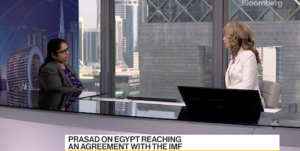Click here to access the original article published on Bloomberg, dated 28 December 2015.
Saudi Arabia said it plans to gradually cut subsidies and sell stakes in government entities as it seeks to counter a slump in oil revenue.
The government expects the 2016 budget deficit to narrow to 326 billion riyals ($87 billion) from 367 billion in 2015. Spending, which reached 975 billion riyals this year, is projected to drop to 840 billion. Revenue is forecast to decline to 513.8 billion riyals from 608 billion riyals.
The budget is the first under King Salman, who ascended to the throne in January, and an economic council dominated by his increasingly powerful son, Deputy Crown Prince Mohammed bin Salman. The collapse in oil prices has slashed government revenue, forcing officials to draw on reserves and issue bonds for the first time in nearly a decade.
“The budget was approved amid challenging economic and financial circumstances in the region and the world,” the Finance Ministry said in a statement. “The deficit will be financed through a plan that considers the best available options, including domestic and external borrowing.”
Below Estimates
The 2015 deficit is about 16 percent of gross domestic product, according to Alp Eke, senior economist at National Bank of Abu Dhabi. The median estimate of 10 economists in a Bloomberg survey was a shortfall of 20 percent. Oil made up 73 percent of this year’s revenue, according to the Finance Ministry. Non-oil income rose 29 percent to 163.5 billion riyals.
The government has managed to reign in “some spending in the second half of the year,” Monica Malik, chief economist at Abu Dhabi Commercial Bank, said by phone. “With the further fiscal retrenchment that we expect in 2016, we think that the fiscal deficit should narrow to about 10.8% of GDP.”
For 2016, the government allocated 213 billion riyals for military and security spending, the largest component of the budget as the kingdom fights a war in Yemen against Shiite rebels.
“In terms of defense expenditure in particular there’s the burden of the war in Yemen,” Nasser Saidi, president of Nasser Saidi & Associates, said by phone. The outcome for 2016 depends on “the course of the war in Yemen, oil prices, how much will subsidies actually get reduced, how effective are they in reigning in public spending and rationalizing some of the spending on large projects, and finally how good are they at reigning in current spending,” he said.
Swift Changes
In its first months in power, King Salman’s administration brought swift change to the traditionally slow-moving kingdom, overhauling the cabinet, merging ministries and realigning the royal succession.
The financial crunch imposed by cheaper oil means the focus is now shifting to economic reforms that the kingdom will carry out over the next five years. The government plans to privatize “several sectors” and “amend the programs of oil, water and electricity subsidies through re-pricing them gradually over the coming five years,” the ministry said.




